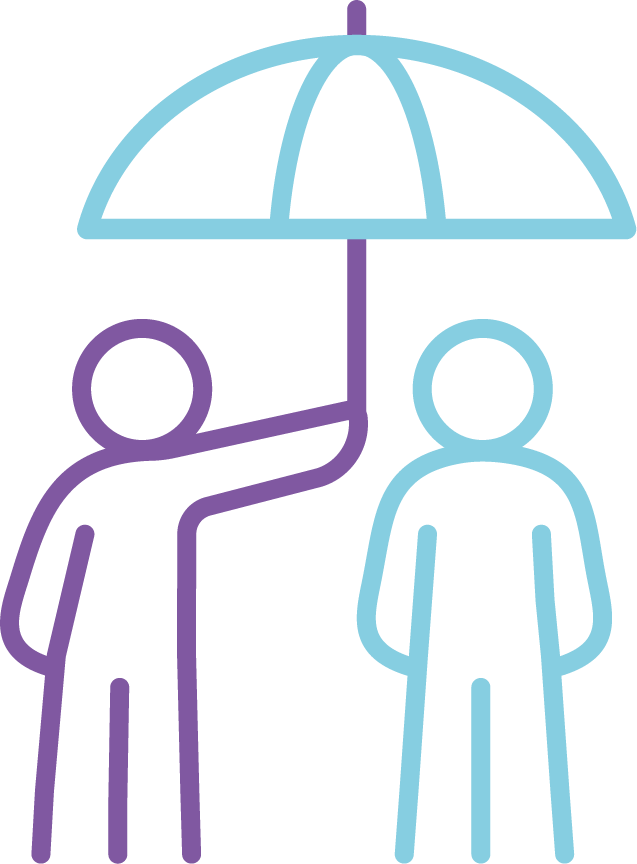What to do if the rape or sexual assault has just happened
If this has happened to you, it’s important to get medical help as soon as possible to check for sexually transmitted infections, injury or pregnancy.
If the rape or sexual assault happened recently (within seven days), you can have a medical examination carried out at St Mary’s Sexual Assault Referral Centre to collect forensic evidence. You don’t have to have a forensic examination. However, it can give useful evidence if you choose to report the crime to the police and the case goes to court.
If you’d like to have a forensic examination, try to keep the clothes you were wearing at the time and don’t wash them. Avoid showering if possible. Also try not to eat, drink, smoke, brush your teeth or go to the toilet.
You can report a rape or sexual assault by calling 999 soon after the crime. Always call 999 if you’re in danger.
If the rape or sexual assault happened a long time ago, you can report this to the police by calling 101.
Different types of rape and terms used
Date rape isn’t a specific offence but you might hear the term used to describe rape when the victim and perpetrator know each other, for example if they’re friends or are dating. The victim may be drugged and unable to give consent.
It doesn’t matter if you know the person who raped you – sex without consent is rape.
Marital rape – consent can never be assumed, even in a marriage. Being married doesn’t give your partner any right to force you into having sex or to have sex with you without your consent. If this happens, it’s rape, and your partner can be prosecuted.
Statutory rape is a term used to describe the rape of children under the age of consent. In the UK, a child under the age of 13 cannot legally consent to any sexual activity. The age of legal consent in the UK is 16.
Gang rape is when someone is raped by a group of people.
Oral rape is when someone penetrates your mouth with their penis without your consent.
Digital rape describes someone’s penetration of your anus or vagina with their finger(s) without your consent. In legal terms, this is classed as assault by penetration but will be treated similarly to rape if taken to court.
Anal rape is when a person penetrates your anus with their penis without your consent. If someone penetrates your anus with another part of their body or object, this is assault by penetration. In the courts this will be treated very similarly to rape.
What is consent?
Giving sexual consent means you agree to be involved in, or take part in, any kind of sexual activity. And you have the freedom and capacity to make that decision. This means you’re not forced, coerced, tricked or scared into giving consent.
Consent can never be assumed, even in a relationship or marriage. Sex without your consent is rape.
You may not be able to give your consent if you were under the influence of alcohol or drugs, didn’t understand what was happening or were asleep. If you don’t have the capacity to give your consent, it cannot be assumed.
You can change your mind at any point. If at first you wanted to have sex but then decided against it, that’s okay. No one has the right to force you to continue. If they don’t stop, then what they’re doing is sexual assault or rape.
The age of consent in the UK is 16, and a child under the age of 13 cannot legally consent to any sexual activity.
I’m worried about reporting rape or sexual assault to the police
Many people worry about reporting rape and sexual assault to the police because they:
- had been drinking alcohol or taking drugs at the time
- are in a relationship with or know the person who attacked them
- have had sex with the person who attacked them before
- had been kissing or touching the person before the attack
- were with someone of the same sex
- didn’t say ‘no’ or didn’t fight back
- can’t really remember it properly
If you’ve been raped, it’s never your fault – no matter the circumstances.
The police will take reports of rape seriously. You can contact us for support throughout the reporting process and to discuss your options. You don’t have to report the crime to the police if you don’t want to. We’ll be here to support you regardless of whether you choose to report.
What to do if you’re being sexually harassed
Rape Crisis England and Wales has more information about sexual harassment, including how it’s defined in law, what to do if it’s happening at work and where to get help.





